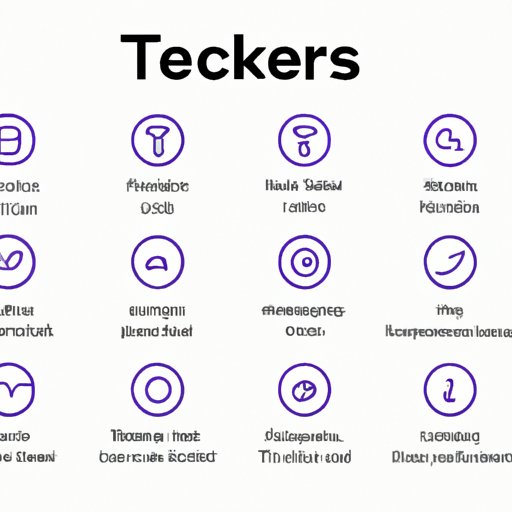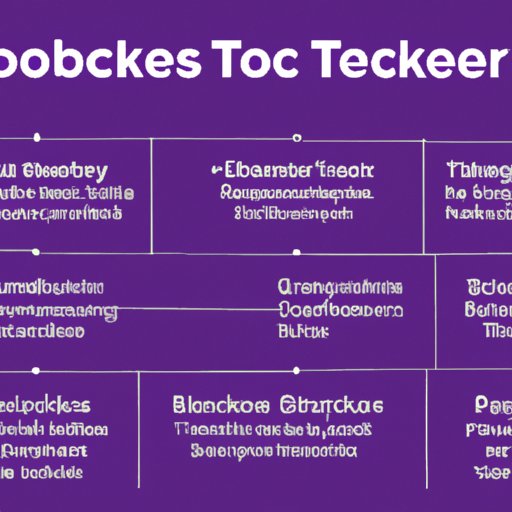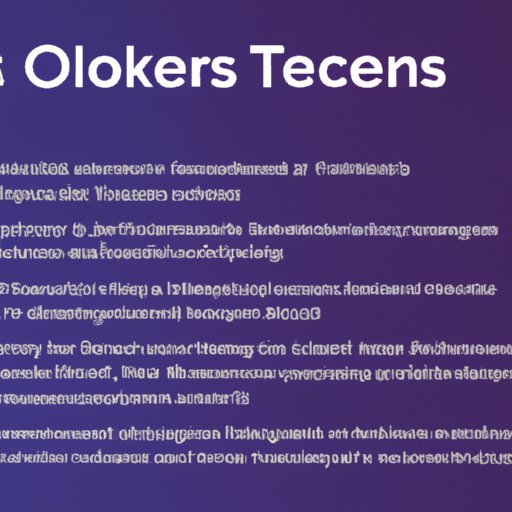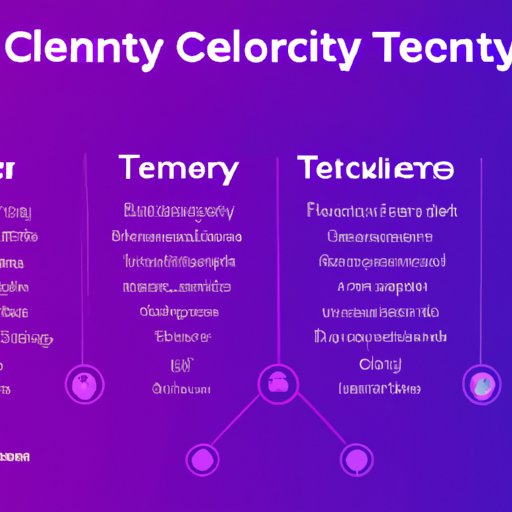Introduction
Blockchain technology has revolutionized the way we think about digital transactions and asset management. One of the key components of this technology is the use of tokens. But what exactly is a token in blockchain? In this article, we will explore the different types of tokens, how they work in blockchain, and their associated benefits.
What is a Token in Blockchain Technology?
A token is a digital asset that can be used to represent an item of value, such as currency, goods, services, or property. Tokens can be used within a blockchain network to facilitate transactions and other activities. They are typically issued by a company or organization and can be used as a form of payment, or as a store of value.

Overview of the Different Types of Tokens
Tokens come in many shapes and sizes. The most common types of tokens include utility tokens, security tokens, asset-backed tokens, and stablecoins. Let’s take a closer look at each one.

Exploring the Different Types of Tokens in Blockchain
Utility Tokens
Utility tokens are tokens that are used to access certain products or services on a blockchain network. These tokens can be used to purchase goods and services, or to gain access to specific features or functions of a blockchain platform. Utility tokens are not designed to be investments, but rather to be used as a means of exchange within the network.
Security Tokens
Security tokens are tokens that are backed by real-world assets, such as stocks, bonds, or real estate. These tokens give holders ownership rights over the underlying asset and are subject to federal regulations. Security tokens are often used to raise funds for businesses, and can also be used as a form of investment.
Asset-Backed Tokens
Asset-backed tokens are tokens that are created to represent a real-world asset, such as gold or oil. These tokens are designed to track the price of the underlying asset and can be bought and sold on cryptocurrency exchanges. Asset-backed tokens offer investors an easy way to invest in traditional assets.
Stablecoins
Stablecoins are tokens that are designed to maintain a stable value. These tokens are typically pegged to a fiat currency, such as the US dollar, or to a commodity, such as gold. Stablecoins offer investors a way to hedge against volatility in the cryptocurrency markets.
How Do Tokens Work in Blockchain?
Tokens play an important role in facilitating transactions and other activities on a blockchain network. Here’s a closer look at how tokens work in blockchain.
Tokens and Smart Contracts
Tokens are often used in conjunction with smart contracts, which are self-executing contracts that are written into a blockchain network. Smart contracts enable users to securely transfer tokens between two parties without the need for a third party. This reduces the cost and time associated with traditional transactions.
Transactions and Mining
When a user sends a token to another user, the transaction must be verified by miners on the blockchain network. Miners use their computing power to confirm the transaction and add it to the blockchain ledger. Once the transaction is confirmed, the tokens are transferred from one user to another.
Tokenization of Assets
Another use for tokens in blockchain is the tokenization of assets. Tokenization is the process of converting real-world assets into digital tokens. These tokens can then be traded on a blockchain network, allowing investors to easily buy and sell assets without the need for a middleman.
The Benefits of Using Tokens in Blockchain
Tokens offer many advantages for users of blockchain networks. Here are some of the key benefits of using tokens in blockchain.
Increased Liquidity
Tokens can increase the liquidity of assets, making it easier for users to buy and sell them. By tokenizing assets, users can quickly and easily trade them on a blockchain network without having to wait for a third-party to facilitate the transaction.
Lower Transaction Costs
Using tokens can also reduce the cost of transactions. Since there is no need for a middleman to facilitate the transaction, the cost of sending and receiving tokens is significantly lower than traditional methods.
Enhanced Security
Tokens offer enhanced security compared to traditional methods. Transactions made using tokens are recorded on a distributed ledger, making it difficult for malicious actors to tamper with them. Additionally, tokens can be programmed to include additional security measures, such as multi-signature authentication.
Faster Settlement Times
Finally, transactions made using tokens can be settled much faster than traditional methods. Since transactions are recorded on a distributed ledger, they can be settled almost instantly, allowing users to quickly access their funds.

Common Use Cases for Tokens in Blockchain
Tokens have a wide range of applications in the blockchain space. Here are some of the most common use cases for tokens in blockchain.
Digital Identity Verification
Tokens can be used to verify users’ identities on a blockchain network. By tokenizing identity data, users can securely access services and prove their identity without having to provide personal information.
Payment Systems
Tokens can also be used to facilitate payments on a blockchain network. By using tokens, users can send and receive payments quickly and securely, without the need for a third-party processor.
Decentralized Exchanges
Tokens can be used to create decentralized exchanges (DEXs) where users can trade cryptocurrencies without the need for a central authority. DEXs offer users greater control over their funds and allow them to trade anonymously.
Voting and Governance
Tokens can be used to create decentralized autonomous organizations (DAOs). DAOs are organizations that are governed by a set of rules encoded into a blockchain network. Members of a DAO can vote on decisions using their tokens, allowing them to have a say in how the organization is run.
Conclusion
Tokens are a key component of blockchain technology, offering users a variety of benefits. They can be used to facilitate transactions, tokenize assets, verify identities, and more. As the blockchain space continues to evolve, tokens will become even more important in the future.
(Note: Is this article not meeting your expectations? Do you have knowledge or insights to share? Unlock new opportunities and expand your reach by joining our authors team. Click Registration to join us and share your expertise with our readers.)
